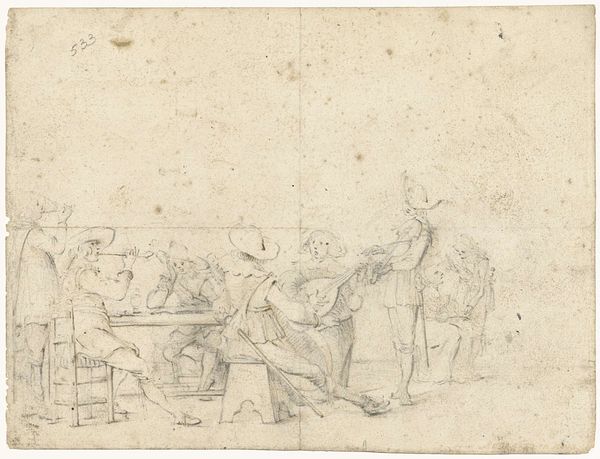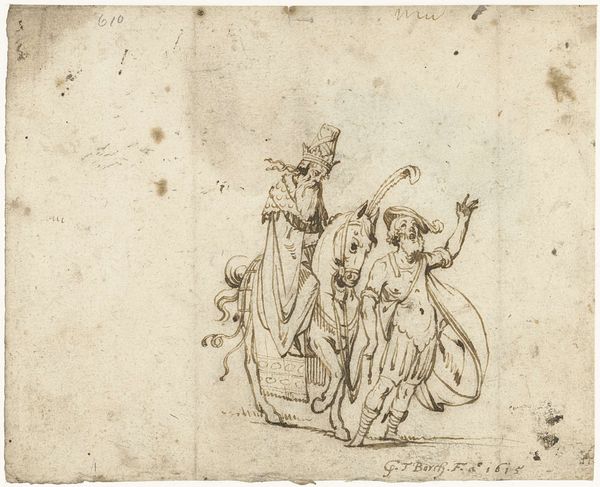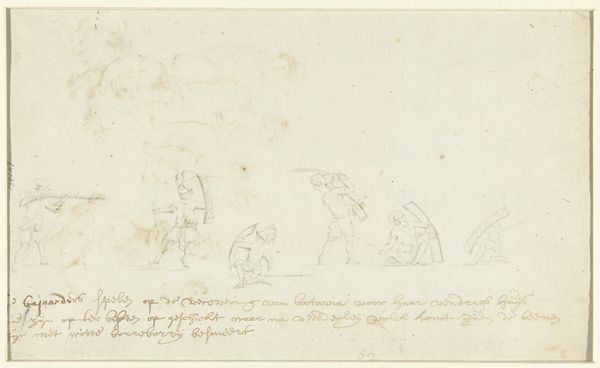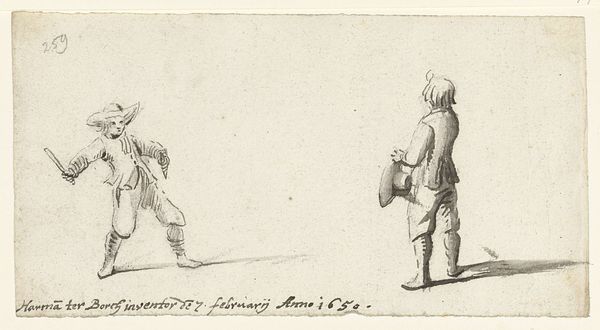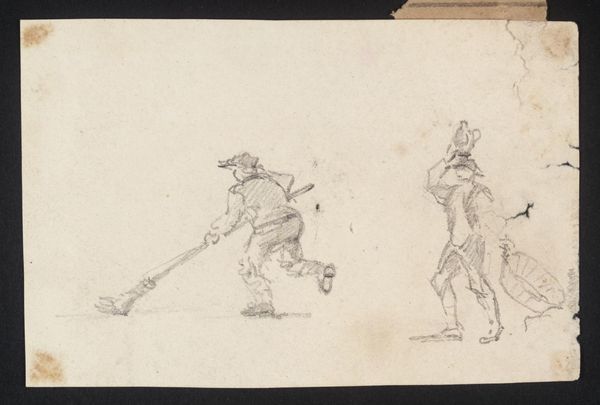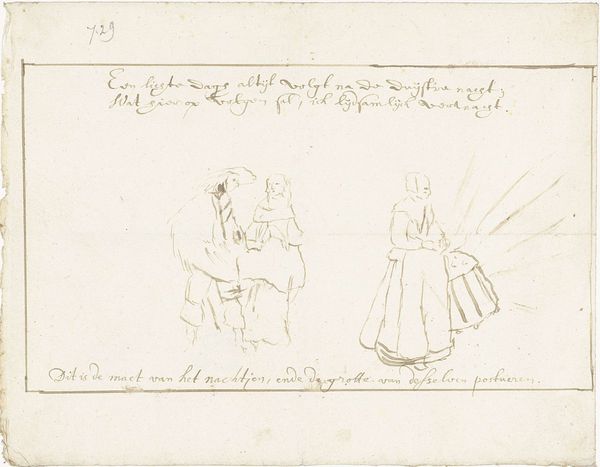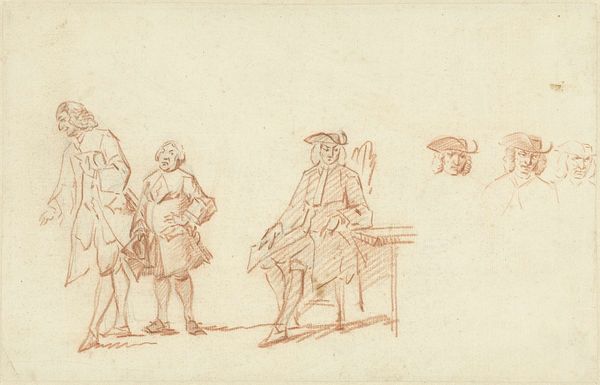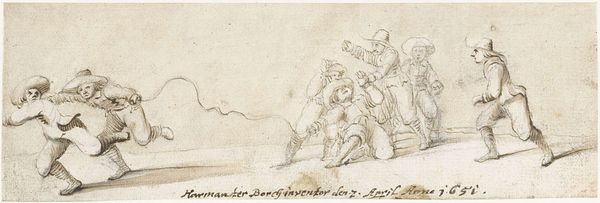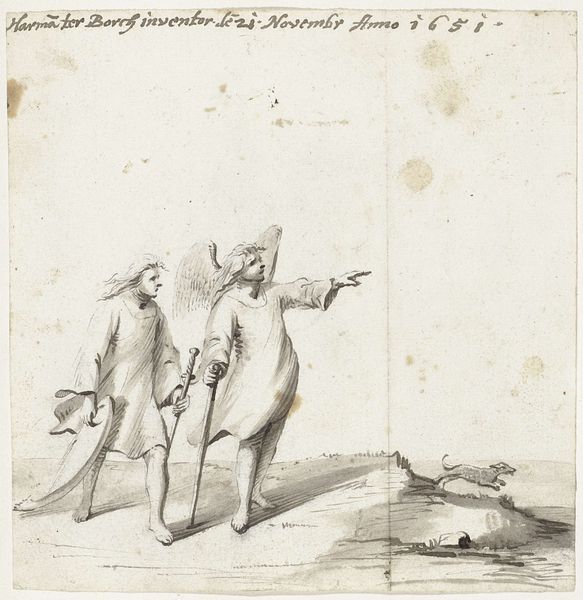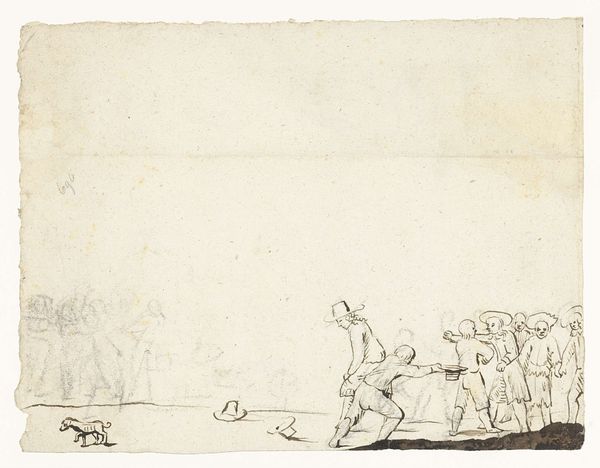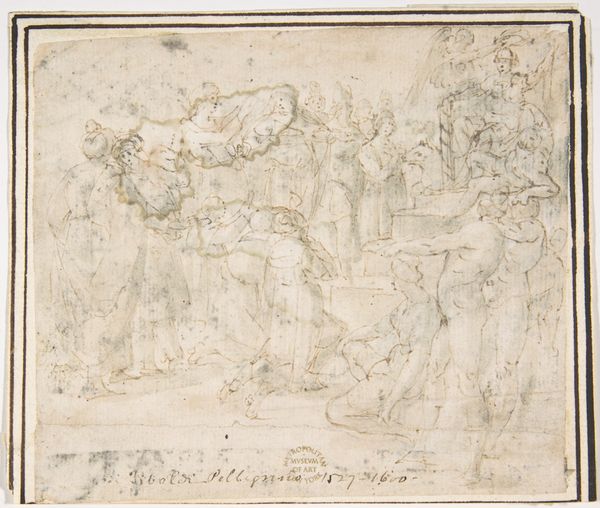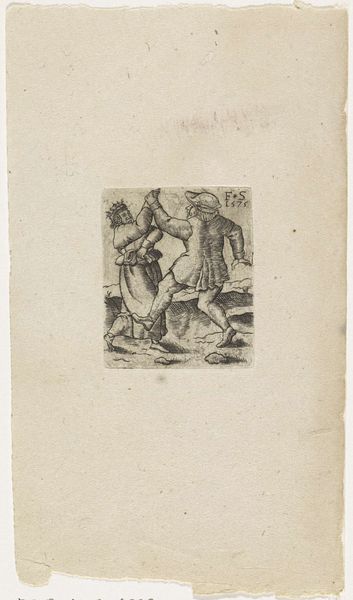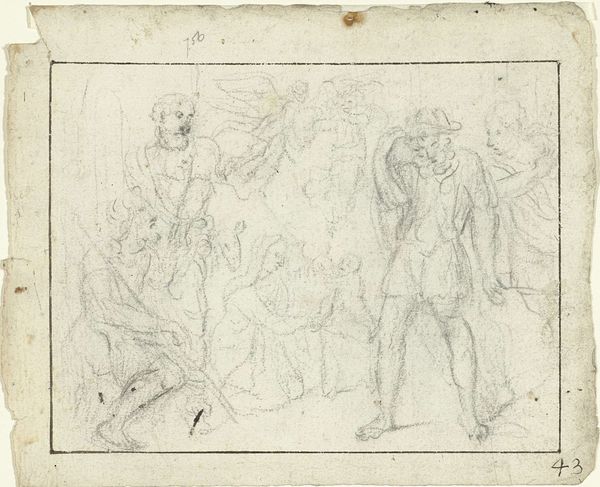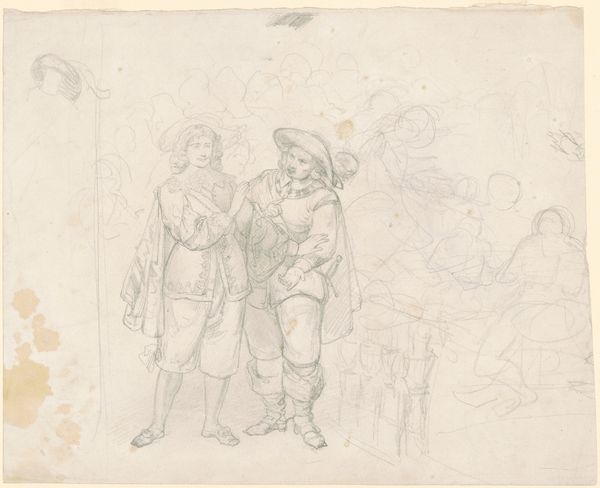
drawing, paper, ink
#
portrait
#
drawing
#
dutch-golden-age
#
figuration
#
paper
#
ink
#
genre-painting
Dimensions: height 100 mm, width 162 mm
Copyright: Rijks Museum: Open Domain
Editor: Here we have "Drie jongens spelen het spel tiepelen," possibly from 1649, by Harmen ter Borch, rendered in ink on paper. I find the looseness of the drawing really striking – the figures feel dynamic despite the minimal detail. What formal elements stand out to you in this piece? Curator: Indeed. The dynamism emerges precisely from the economy of line. Note how Ter Borch captures the essence of movement through swift, confident strokes. Consider, for example, the way the forward figure's posture is communicated through a simple curve of the back and the angle of the legs. Editor: So, it’s the line itself that conveys so much information. The minimal shading suggests form without fully defining it. Curator: Precisely. The strategic placement of darker ink creates an illusion of depth and weight. Notice how the ground beneath the foremost figure is rendered with thicker lines, grounding him in the scene, in contrast with the lighter, almost ethereal, treatment of the figure to the right. Are these just outlines, or is Ter Borch trying to model some volume using line density and the stark contrasts to activate the surrounding paper? Editor: I see what you mean! It’s a remarkably efficient way to create the impression of three-dimensionality. He seems to almost activate negative space. I guess the composition then reinforces this contrast and brings energy into the depicted game. Curator: Exactly. This interaction activates our gaze across the composition as forms seem about to touch but remain isolated. Ultimately, the drawing creates a world that seems both vivid and dreamlike. It's in this ambiguity that Ter Borch finds such success. Editor: I hadn’t thought about it that way! Thanks, this gives me a lot to think about regarding how such basic artistic methods carry and create a more complex effect.
Comments
No comments
Be the first to comment and join the conversation on the ultimate creative platform.
